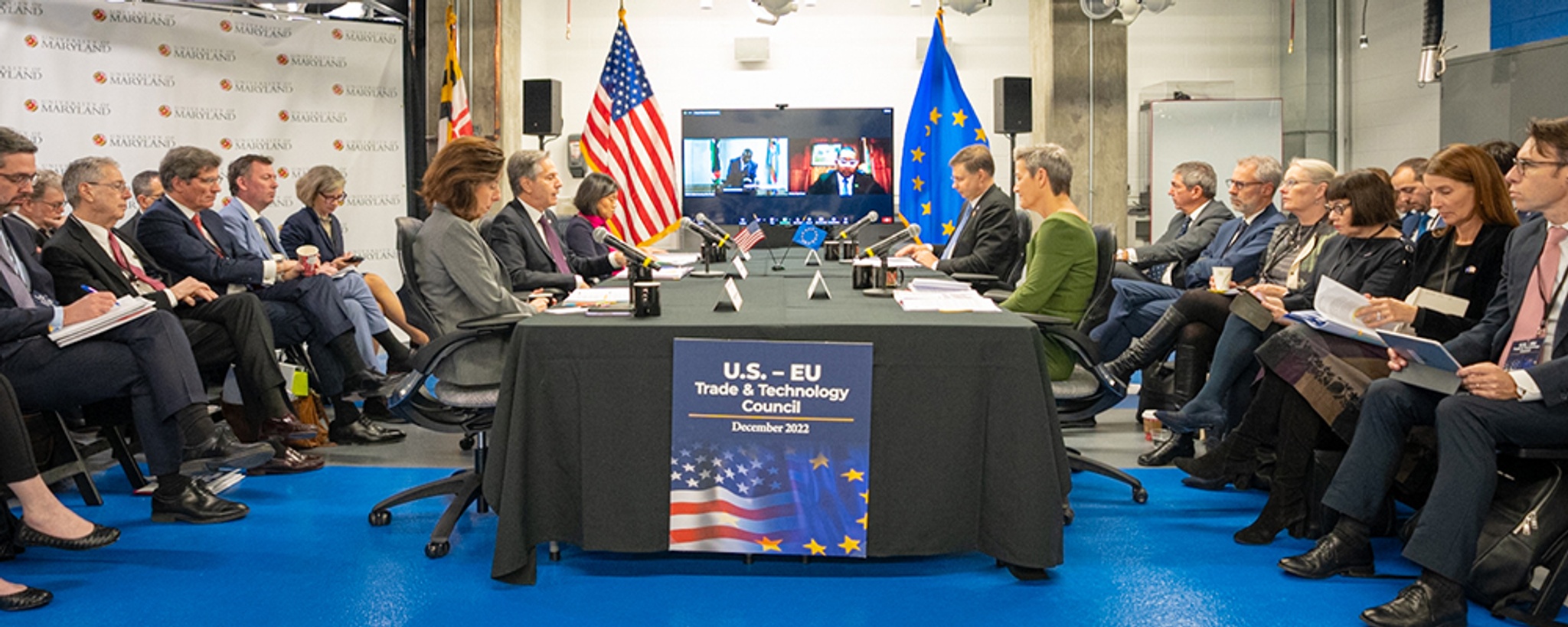Europe
Navigate forward to interact with the calendar and select a date. Press the question mark key to get the keyboard shortcuts for changing dates.
Navigate backward to interact with the calendar and select a date. Press the question mark key to get the keyboard shortcuts for changing dates.
Featured
The Digital Markets Act: A Triumph of Regulation Over Innovation

The Digital Markets Act presents three fundamental challenges as it nears adoption: First, it will increase regulatory fragmentation. Second, its disproportionate blanket obligations and prohibitions will be economically detrimental and legally controversial. Third, it will be difficult to implement, as some of its provisions clash with other European regulations.
More Publications and Events
February 13, 2026|Blogs
How Foreign Non-Tariff Attacks Threaten American Innovation
Global trade is evolving into a form of mercantilist economic warfare where foreign nations use discriminatory regulations to target the U.S. tech sector, draining its wealth and undermining American innovation.
February 11, 2026|Blogs
Op-Art: The High Toll of Europe’s Payment Sovereignty
European calls for “payment sovereignty” misdiagnose the problem: Visa and Mastercard lead through competition, not coercion, and a state-backed alternative would entrench protectionism instead of enabling regulatory reforms that would let European firms scale and compete globally.
February 6, 2026|Blogs
Europe’s DSA Puts an Unfair Target on American Tech Companies
The EU’s Digital Services Act (DSA) imposes the heaviest regulatory burdens on large platforms in a way that overwhelmingly targets U.S. technology companies, exposing them to disproportionate compliance costs and fines while largely sparing European firms. This discriminatory model functions as a non-tariff attack that risks weakening U.S. innovation and competitiveness, and is now being replicated globally, amplifying the strategic challenge for American tech leadership.
February 5, 2026|Op-Eds & Contributed Articles
Plea for Transatlantic Ties, Not Technological Autarky
In a letter to the Financial Times, Daniel Castro argues that Europe’s push for “digital sovereignty,” exemplified by France replacing Zoom and Teams with a domestic platform, risks fragmenting the transatlantic digital ecosystem and weakening security and efficiency, and that true resilience comes from interoperable systems, shared rules, and cooperation among allied countries.
February 4, 2026|Op-Eds & Contributed Articles
The Sane Insanity of Digital Sovereignty
Matthew Kilcoyne in World Commerce Review argues that Europe’s pursuit of digital sovereignty risks fragmenting the digital economy and weakening innovation, and instead calls for coordinated, interoperable infrastructure, open data flows, and shared standards to preserve scale, efficiency, and economic growth.
January 29, 2026|Blogs
Three Ways the EU’s Payment Sovereignty Strategy Undermines European Consumers
The EU’s “payment sovereignty” push is a misdiagnosed, protectionist project that would benefit incumbent banks rather than consumers. Europe should instead pursue regulatory reform and use existing tools like interchange caps and PSD2 to promote competition and lower costs.
January 27, 2026|Press Releases
EU–India Trade Deal Exposes US Trade Vacuum, Says ITIF
The EU–India trade deal is a wake-up call for Washington, highlighting how U.S. exporters are falling behind as other nations cut tariffs and reshape global trade.
January 26, 2026|Blogs
Fact of the Week: Pursuing Digital Sovereignty Could Cost Europe an Estimated $4.2T Over 10 Years
According to the Center for European Policy Analysis, digital sovereignty would conservatively cost the EU €3.6 trillion ($4.2 trillion) over 10 years.
January 26, 2026|Reports & Briefings
How the Brussels Effect Hinders Innovation in the Global South
Mandatory adoption of EU-style digital rules amounts to regulatory imperialism for many countries in the Global South. It limits technology adoption, raises compliance costs, and undermines the ability of local firms to compete with Western ones.
January 22, 2026|Blogs
2026: The End of the Western Alliance and the Emergence of China
Davos made clear that many “allies” would rather denounce the United States and chase access to Chinese markets than bear the burdens required to sustain the Western alliance and democratic system.


